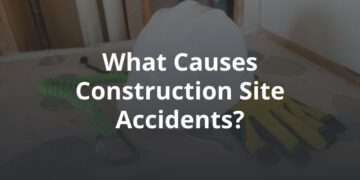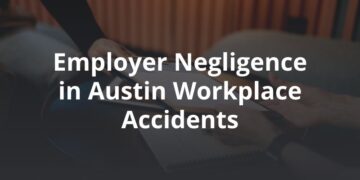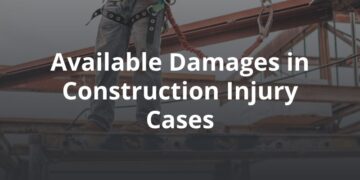After a traumatic accident, victims are often left to cope with exorbitant medical bills for the treatment of their injuries. According to CDC data from 2013, in Texas, motor vehicle accident fatalities were responsible for a total of $37 million in medical costs. The average hospital visit cost for an accident victim was $56,674 nationally.
Those expenses can be difficult to afford, particularly if your car insurance carrier or health insurance provider is uncooperative. Even when insurance providers do step in to assume some costs, they may only cover a percentage of your bill or what you owe after paying a hefty deductible. That leaves many patients struggling to pay high medical bills; the American Hospital Association estimates that more than $620 billion in medical costs have gone unpaid since 2000.
So what happens if you can’t pay a hospital bill? Unpaid medical bills can have serious consequences, not just for the health care system but for the individuals who don’t pay. Ignoring medical bills can negatively impact your credit and may result in garnished wages or even a lawsuit with medical providers.
The good news is that accident victims have some options for paying medical bills to avoid these consequences. Here’s why you don’t want to sit on them — and what you can do if you can’t afford to pay your hospital bills.
Your Bill May Go to Collections
After your medical provider attempts to contact you several times about your outstanding account, they will often send the bill to a collections agency. Some hospitals have internal collections departments, which may have a less devastating impact on your credit health. However, if your medical provider chooses to sell your debt to a third party collections agency, that debt may seriously harm your credit. Some types of providers are typically more aggressive in pursuing collections than others; for instance, EMS, ER doctors, radiology, and pathology providers often send bills to collections agencies.
Low credit scores will make it harder to obtain loans and may raise the interest rate lenders offer on future loans and credit cards. It can even affect your ability to get an apartment or land a job, as landlords and employers often review credit scores as part of the application process.
And then, frankly, collections agencies are annoying. Agents will often go to extreme measures to collect unpaid debts. They may call you relentlessly, even early in the morning or late in the evening.
However, there are some limitations to how medical providers and collections agencies can pursue payments and impact your credit. Here are a few of those restrictions:
- Credit reporting agencies must wait at least 180 days before adding your bills to your credit report.
- Collections agencies cannot falsely threaten to sue you.
- Agencies cannot call you at work after you ask them not to.
- Agents cannot threaten to tell your employer or others (except your spouse and your attorney) about your unpaid debts.
- Collections agencies cannot claim you have committed a crime by not paying your bill.
Your Medical Provider May Sue You
If creditors can’t obtain a payment for your medical bills by contacting you, they may choose to file a lawsuit to obtain compensation. One question our clients often ask is “can hospital bills garnish your wages as part of that lawsuit?” The answer is yes — in some cases. In some states, creditors can garnish wages to pay for debts. Texas wage garnishment law, however, limits creditors from collecting debts from wages except in very specific situations, such as to pay outstanding income tax, child support, alimony, or student loans. Your wage will not be garnished for medical debts.
Your Medical Provider May Assert a Hospital Lien
Taking immediate action to treat your injuries and seek legal representation can often help you keep bills out of collections, however. If you are pursuing a personal injury case — and you inform the hospital that treated you that you are doing so — the hospital may assert a lien on your settlement. This means that instead of sending your bill to collections, the money you owe will be taken out of your settlement.
This provision is outlined in Texas Property Code Section 55.002(a). Essentially, it allows a lien to attach to your medical costs if your situation meets the following conditions.
- Your injury was due to another’s negligence.
- You seek medical treatment no later than 72 hours after the incident.
While hospital liens can help keep your bill out of collections, they can also be a nuisance. First, if you try to settle your personal injury case, the insurance company will not pay you until that hospital lien is satisfied. Second, because your hospital bill can be very high, especially if you don’t have health insurance or the hospital has not submitted your bill to health insurance, the amount taken from your settlement can be staggering.
But there are ways you can protect yourself from having an unreasonable chunk of your settlement paid to the hospital. For example, you can force the hospital to submit your bill to your health insurance, which will reduce the bill according to your health insurance plan. You can also sue the hospital and prove their bill is unreasonably high, which is not uncommon.
The Major Takeaway: Be Proactive About Bills
Unpaid bills can come with major consequences — unless you take action. Seeking immediate attention for your injuries and contacting a personal injury lawyer right away can help you manage the financial impact of your treatment. Attorneys — like our team at FVF — will help you negotiate with medical providers to keep bills out of collections; in some cases, they may be able to arrange alternative payment options or even lower your hospital bills.
A lawyer can also help answer questions like what happens if you can’t pay hospital bills and any other inquiries. Contact us today for an initial case evaluation at no cost. We’re here to answer any and every question you have about your personal injury.







